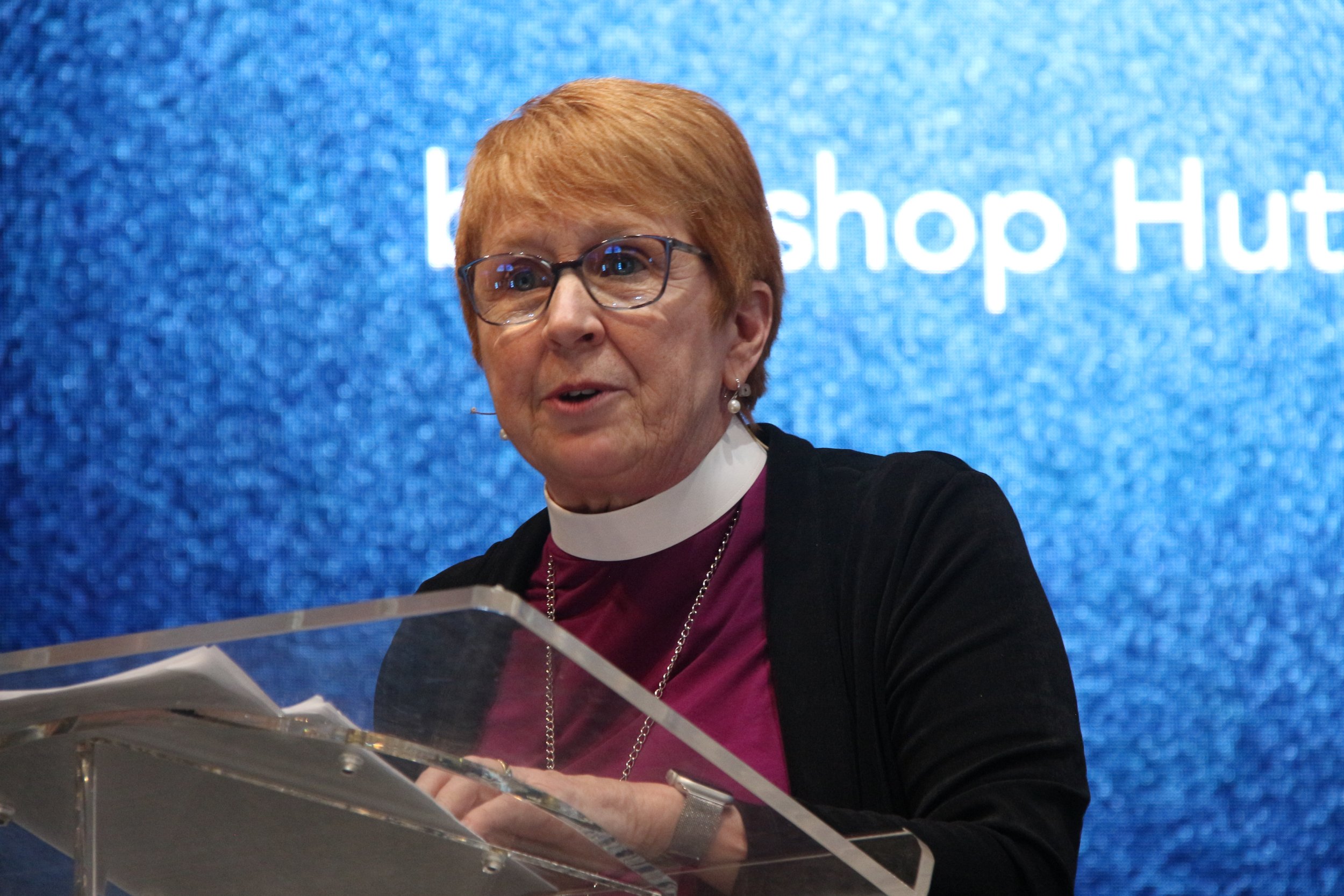Being in a Denominational Church
Pastor’s Column for the June, 2024 newsletter
This month is our annual synod assembly again up in Mesa. I’ll be there June 14-15th to cast votes on resolutions, listen to speakers, and, this year, to vote on who will be the bishop. Our synod, called the Grand Canyon Synod, has been led for the past 6 years by Rev. Deborah Hutterer. Here first term is up and she will be running again.
Holy Communion setup at Love of Christ Lutheran Church, Mesa, AZ
A bishop here can serve two terms, and is elected by “ecclesial ballot”. Basically, everyone at the synod assembly writes a name for who they want to be bishop. It can be any pastor in good standing in the ELCA. They don’t have to live here. If one person gets 75% or more of the vote they are elected right away. If no one has that much, it goes to a second ballot, or a third, and so on until one person is elected. (I can never remember the exact percentages needed with each round, but the crowd thins each time).
The idea behind it is to reduce the influence of campaigning and leave more room for the Holy Spirit. Some people do, of course, try to get their names out there, and having name recognition in the synod always helps. There has certainly been a tendency to elect bishops from larger urban churches because people know them, but that’s not a hard rule.
All of it will make things more interesting. Synod assemblies, once upon a time, were huge events that went most of a week. People would submit multiple resolutions, followed by loud and contentious debates. Local newspapers would send a press corps. In the 70’s it was the Viet Nam war resolutions, then nuclear war in the 80’s, then in the 90’s and early 2000’s it was same sex marriage and ordination. I remember lines of people cued up to debate pro or con changing the policies, complete with accusations, crying, anger, emotional pleas etc.
Then in 2009 the ELCA approved a social statement on sexuality, along with a policy change for ordination, that allowed same-sex marriage and ordination, and we had more than a few people leave – much as is happening now with the United Methodist Church. Since then, assemblies have been quick, with few resolutions. Part, I’m sure, is the lack of such hot-button issues. But I also suspect people got burned out with the sexuality debates, and after being so stressed with congregational conflicts and then covid battles, nobody wants to debate much.
Bishop Deborah Hutterer of the Grand Canyon Synod of the ELCA
It's all part of being a church in a denomination, which they nickname the “mainline” today. In the 1950’s most people belonged to denominational churches. Now that number has shrunk to a minority. Instead, as you can see in NW Tucson, non-denominational churches have proliferated. They have trendy names that don’t sound particularly religious and are mostly conservative-Baptist in their politics and theology. Lord of Grace is a bit of an outlier in this regard.
There are reasons for the growth-decline trends. Mainline churches have done plenty of resting on past history and getting lazy, but it’s much more than that. I believe one of the biggest drivers towards non-denominationalism is the way people function in community.
Mainline churches are set up like democracies. We have meetings where everyone gets a voice and vote, and we know we won’t always get what we want. Not everyone will like every new initiative or agree with all the items in the budget, but it’s always been assumed that we would stay with our church and support it even if it didn’t always go our way. And we always understood that democratic process involves meetings, discussions, debates, and time investment. Changes can take time, compromises get made, actions get delayed, but that’s how it works.
Taking a vote at the 2023 Grand Canyon Synod Assembly in Oro Valley, AZ
If you look around our world, participation in organizations is declining across the board. Social groups like Masons or Moose or Elks are shrinking. Non-profits are getting fewer regular volunteers. People are simply less interested in investing the time in process or belonging to groups that require it. Instead, it’s more what we call “vote with your feet”, where if you don’t like it, you just go. You probably don’t lodge a protest or try to talk to anyone before you go; you just leave and look for somewhere else that’s more to your liking.
We do this with restaurants. If I don’t like the food, I’m not going to volunteer to be on a committee to meet weekly for several months with the restaurant owner and chef to develop a new menu, which would then be voted on by the customers. I just leave and try somewhere else. When new ownership comes, I might try it again, see if it’s changed, but I’m not spending my time to fix it.
This attitude carries over to church. Rather than invest in a democratic process to change what you might not like, people are more likely to just move somewhere else.
There is some good in this. I have known people who are so miserable in the church they’re in, constantly fighting things, being angry, blocking, complaining, when they could just go down the road and be content. If I weren’t a pastor, and moved into a new town, I would shop around a little before joining a church. If they taught fundamentalism, creationism, or complementarianism (where women submit to husbands but we say that the obedience is “complementary” to the man’s authority and therefore equal – I guess), or anti LGBTQ sermons, I wouldn’t go. If they gave my kids dirty looks in worship when they talked, I’d move on
On the other hand, it’s hard as a church leader to always stay ahead of everyone’s felt needs and opinions. You try to listen, stay in touch, know what’s going on, but you can’t read minds. It makes church members more like customers, less like family members in community. If we really love each other and care for each other, then leaving will be a last resort, not the immediate go-to. In a community, you’ll make the point of getting involved in the process because you have a commitment to the church. If you’re a customer, it’s commitment until something better comes along.
But I wouldn’t change being in a denomination for the alternative. Yes, I’m biased, but I have seen what happens to churches that leave the ELCA and go independent. They usually do fine for the first few years, then, when the pastor retires or leaves, they struggle to find someone new. Then, there’s an exodus of people who don’t like the new pastor, and the place is dead in a generation. They struggle to outlive the founding pastor’s personality. Mainline churches have more resilience this way.
I also like having a bit of a buffer on things with the synod office. You can’t just fire a pastor with a council vote (I like that, of course). You can’t just sell land. You can’t just leave the denomination (without a lengthy process). You can’t just do a lot of things. There’s a process to keep the most extreme actions from being done quickly, and force people to take time to debate and discuss it. Things done in the heat of the moment are rarely done wisely.
So we will see how this synod assembly goes. I am the designated photographer, so I get to get up from the table and walk around to take pictures. (You can see my photos from 2023 here). I will be more excited at some speakers than others. I will enjoy catching up with colleagues, and hearing some news, and know that I’m a part of something bigger than just one church, and that we can do a lot of these things we do better when we live in community. I will enjoy watching the balloting process for a new (returning?) bishop. I will also surely get frustrated at some opinions voiced, some statements made, some things other churches are doing that I disagree with. But I am a part of a community, we are a part of a community, and we don’t walk out on each other without really taking time to turn over stones first.
Peace,
Pastor Lars




